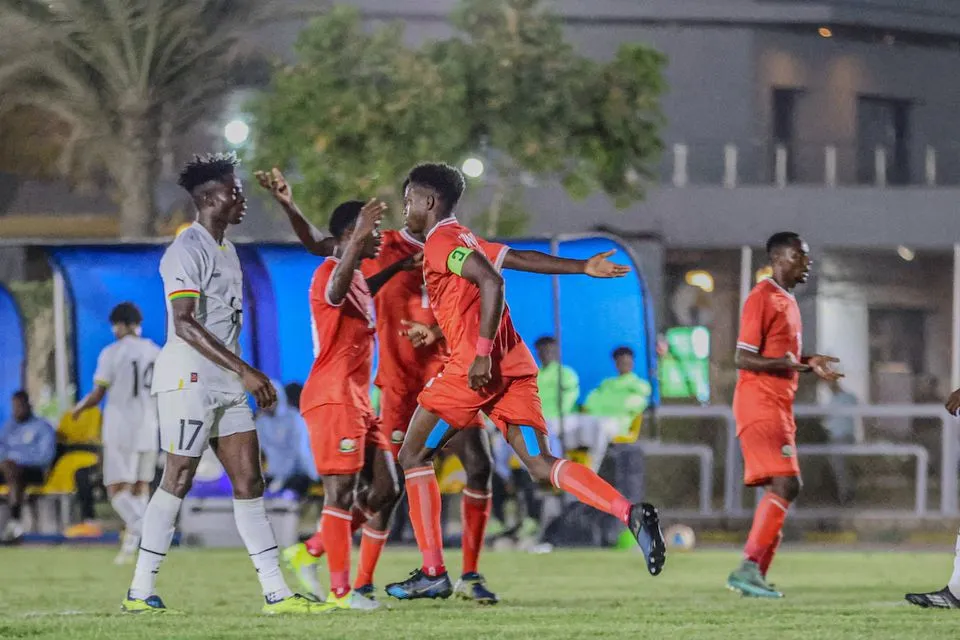There’s a special kind of hope that lights up a tournament when a nation sends its brightest young talents to compete on one of Africa’s biggest stages. As the Kenya U-20 AFCON campaign 2025 began, the Rising Stars carried not just their own aspirations, but an entire country’s yearning for football glory.
Optimism and talent fuel Kenyan ambitions
There was a palpable buzz within the Rising Stars camp ahead of their Group B campaign in Cairo. Football Kenya Federation vice president McDonald Mariga, a name etched into the modern history of Kenyan football, set the tone with unwavering praise. Comparing this generation to his own, he declared, “The boys we have in our U20 team are good. I do not think we were anywhere near their levels during our time.” Mariga’s hands-on support, regularly joining training sessions and offering mentorship, reflected just how much belief was placed in this squad.
That optimism was echoed by Rising Stars coach Salim Babu and his technical team, who entered the tournament with researched tactics and a hunger to make amends for past shortcomings. The goal was clear: perform well in the U-20 Africa Cup of Nations and chase a coveted spot in the 2025 FIFA U-20 World Cup in Chile.
Group of death: Early challenges and high stakes
The draw placed Kenya alongside former champions Morocco, continental heavyweights Nigeria, and a traditionally tenacious Tunisia. The task was daunting—finish in the top two or hope for a miracle as one of the two best third-placed teams. All four semi-finalists would be rewarded not just with continental prestige, but also with tickets to the World Cup, further raising the pressure on every minute played.
Gallant opener comes up short against Morocco
Kenya kicked off their campaign against Morocco, one of the most feared sides in the group. The Rising Stars went down 3-2 at the 30 June Stadium, but the scoreline revealed only part of the story. Lawrence Ouma gave fans hope by scoring the team’s first goal, rising above defenders to head home a Kevin Wangaya free kick, and midfielder Hassan Beja added his name to the score sheet.
Despite flashes of brilliance, defensive lapses and unforced errors allowed Morocco to gain the upper hand—issues the technical bench reviewed extensively through post-match video analysis. Coach Babu explained, “We briefly reviewed the videos of the first match before leaving the stadium. We managed to address the mistakes and lapses in concentration that occurred in the game. Importantly, we reminded them of playing to the whistle and avoiding unforced errors.”
| CASINO | BONUS | INFO | RATING | |
|---|---|---|---|---|
|
bonus
New players get 50 free spins and a Ksh 2500 freebet!
See 7 Bonuses
|
info
BK 0000665 PG 0000405 Good combination of online casino and betting platform |
|||
|
bonus
Daily 25% bonus on your deposits!
See 6 Bonuses
|
info
Curacao 1668/JAZ Generous casino bonuses |
|||
|
bonus
Refer friends, win cash prizes!
|
info
BK 0000672 PG 0000412 Mobile-friendly |
|||
|
bonus
Welcome package: 190,000 KES + 150 FS
See 11 Bonuses
|
info
BK 0000695 PG 0000419 A wide range of bonuses |
Tactical changes as Kenya seek redemption against Tunisia
The loss to Morocco set the stage for a defining second clash with Tunisia. The stakes couldn’t have been higher; both sides were licking wounds from opening game losses—Kenya to Morocco and Tunisia to Nigeria. Assistant coach Anthony Akhulia emphasised, “We have worked on the mistakes that we made in our first match. We did not play badly, it is just that we made small mistakes that Morocco capitalized on.” The emphasis now fell on scoring early and defending as a unit.
Head coach Babu responded with tactical adjustments, making three changes to his starting lineup. Javan Omondi was brought in on the right wing, Joseph Bate was entrusted at centre back, and Wyclifford Oduor took the place of the injured first choice goalkeeper Benard Jairo. These changes aimed to boost steel at the back and inject new urgency in attack.
Heroics, heartbreak and costly errors against Tunisia
The Rising Stars started strongly. The pace and intent were visible, and once again, Lawrence Ouma—now carrying the nickname “Olunga” after the famed Kenyan striker—rose to the occasion. After recovering from a head clash, he converted a tidy finish in the 38th minute, capitalizing on fine work from Hassan Beja. With his second goal of the tournament, Ouma kept Kenya’s hopes flickering and his personal ambition for the coveted Golden Boot alive.
Tunisia, however, showed patience and tactical awareness. Just when it seemed Kenya would enter halftime with a slender lead, a VAR review led to a penalty against Baron Ochieng for a handball. Fares Bousnina converted confidently, shifting momentum as the sides returned to the dressing rooms tied at 1-1.
The second half proved devastating for the Rising Stars. A lack of communication between keeper Oduor and Ochieng allowed substitute Omar Ben Ali an easy finish to make it 2-1 for Tunisia, a goal that underscored the cruel price of split-second hesitancy. With Kenya pushing for an equaliser, a looping cross-turned-shot by Alaeddine Derbali in the 85th minute sealed the result at 3-1, dashing Kenyan hopes.
Statistics and bittersweet realities
In two matches, Kenya scored three goals—two from Ouma and one from Beja—but conceded six, with defensive slips at the heart of both losses. Keeper Bernard Jairo had posted a respectable 66.7% save rate in the opener, but with his injury for the Tunisia match, inexperience between the posts was telling.
Tunisian organisation proved decisive. Despite coming into the group stage without scoring in their last 271 minutes of tournament football, they exploited Kenyan mistakes at critical junctures. Kenya, meanwhile, struggled to maintain focus for the full 90 minutes and paid dearly for lapses—first in Cairo’s opener and again when it mattered most against the North Africans.
The human story: Triumphs amid heartbreak
There’s a tendency to view tournaments purely through wins and losses, but the Kenya U-20 campaign is awash with stories of raw hope, resilience, and the agony of coming up short. Youngsters like Lawrence Ouma—a product of the Michael Olunga Football Academy—emerged not just as scorers, but as symbols of Kenya’s footballing future. Ouma’s ambition was not just personal. “The interests of the team obviously come first, but at a personal level, I am determined to win the tournament’s ‘Golden Boot’,” he revealed. That balance between self-belief and the greater good defines the spirit of youth competitions.
The team now faces a daunting task—needing to beat Nigeria in their final group match and hoping for a miracle to reach the last eight. The dream of making the 2025 FIFA U-20 World Cup may be over, barring an extraordinary turn of results, but the lessons learned in Cairo will endure.
Lessons to carry forward
Coach Salim Babu’s words echo the next steps for Kenyan youth football: “We have to win the match… there is no shortcut to it or two ways about it.” Yet, as the dust settles and the stars start their journeys back home, perhaps the biggest achievement is intangible—building a group of players who will serve as the backbone for future Harambee Stars squads.
- This campaign showed the world that the new generation of Kenyan talent has technical skill, heart, and the courage to face giants,
- It exposed areas to build on—mental strength late in games, and defensive cohesion under pressure,
- It inspired a nation to keep believing in its footballing future.
As Mariga crowned with a sense of pride, this is Kenya’s best U-20 side yet. The World Cup dream stalls for now, but the seeds for tomorrow have been sown—and perhaps, the next time the Rising Stars gather, the weight of defeat in Cairo will transform into the foundation of victory on the continental or even the global stage.










